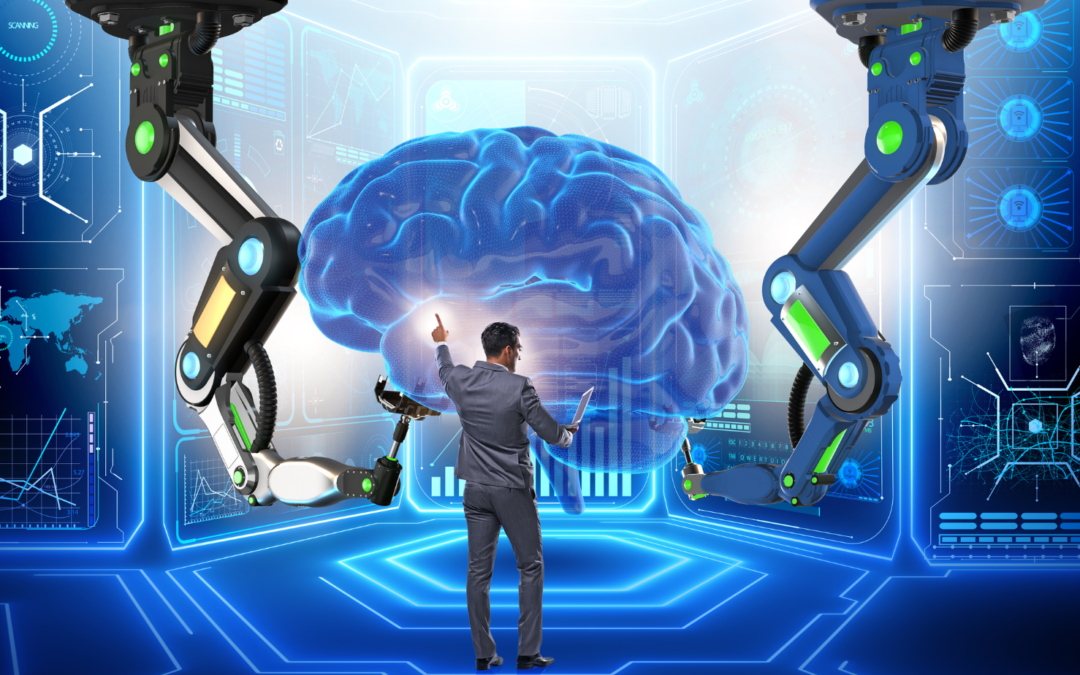Table of Contents
ToggleMedically Reviewed By: Dr Douglas Slakey
Image Credit: Canva
Key Takeaways
Revolutionizing Healthcare Software: AI is fundamentally transforming healthcare software development, enhancing patient care and operational efficiency with predictive algorithms for patient outcomes, diagnosis, and treatment planning.
Personalized Healthcare Apps: The integration of AI in healthcare app development is leading to more personalized and intelligent patient engagement tools, such as symptom trackers and virtual consultations, especially beneficial in remote patient monitoring.
Advancing Medical Diagnostics: AI-powered medical software is paving the way for advanced diagnostics, enabling earlier and more accurate disease detection, crucial in conditions where early intervention can significantly improve outcomes.
Discover more
The aggressive passion with which healthcare seems to be adopting artificial intelligence (AI) solutions and adapting its practices to the new realities presented by it demonstrates quite effectively that the fusion of artificial intelligence (AI) with healthcare software development is not just a trend but quite the quiet revolution. Startups and the giants of the healthcare industry all in thrall to its capabilities, where AI-driven approaches are redefining the way we think about healthcare app development, medical software, and digital health solutions.
The Emergence of AI in Healthcare Software Development
The healthcare industry finds itself in the throes of a change it has not seen before, heralded by an influence that is not biological, and therefore not traditional. AI is making the industry change in ways that are immensely promising and yet equally immensely disorienting. Healthcare software development is now more focused than it has ever been on integrating AI to enhance patient care and operational efficiency. AI algorithms are being used to predict patient outcomes, assist in diagnosis, and even in the planning of treatment. This integration is not only improving patient care but is also streamlining administrative processes.
Healthcare App Development: A New Era of Patient Engagement
Healthcare app development is another area where AI is making a significant impact. Where the use of AI at the institutional level has undeniably changed how healthcare services are being provided on professional premises, the apps are also becoming more personalized and intelligent, offering features like symptom tracking, virtual consultations, and medication reminders for patients without requiring them to present themselves at these premises. This shift is particularly beneficial for home care software in Canada, where remote patient monitoring can be more difficult to manage because of the geographical spread of the country and the vast distances involved.
Medical Software Development: Paving the Way for Advanced Diagnostics
In step with application development, Medical software development has also been positively influenced by AI. Advanced diagnostic tools powered by AI are enabling healthcare professionals to detect diseases earlier and with greater accuracy. This highly advanced capability can be crucial in conditions where early detection offers the only sliver of hope to significantly alter the course of treatment and improve patient outcomes.
Healthcare Web Development: Creating User-Centric Platforms
So! We have Healthcare Apps! And we have Healthcare Software! Then how can we not have Healthcare Web?! Yes, we can!! (Sorry, President Obama, it just sounded so right). Healthcare web development is not being left behind in this AI-driven transformation. Websites are becoming more interactive and user-friendly, with AI chatbots providing instant assistance and information. These developments are enhancing the overall user experience, making it easier for patients and healthcare providers to record, save, access and share information.
Digital Health: A Synthesis of Technology and Healthcare
What we call “Digital Health” can perhaps be best understood as a holistic symbiosis of digital technologies with health, healthcare, living, and society; and as such, it is patently the most significant beneficiary of AI in healthcare. AI is at the forefront of this movement to enhance the efficiency of healthcare delivery, offering solutions that are completely upending the way we have traditionally delivered healthcare and experienced healthcare. Like the biker’s girlfriend said in the advert: “tradition ain’t what it used to be”.
Conclusion: AI – A Catalyst for Change in Healthcare
The integration of AI in healthcare app & software development is more than just a technological upgrade; it’s a paradigm shift of tectonic proportions; the ground giving way under Indiana’s feet in The Last Crusade. But the AI crusade is far from being the last. From enhancing patient care to revolutionizing diagnostics and treatment, AI is undoubtedly shaping new business models in healthcare. As we continue to witness this transformation, it’s clear that AI is not just an aid but a fundamental component in the future of healthcare.
Learn more with MarkiTech...
Sensights.ai is a company focused on remote patient monitoring and aging solutions, which utilizes artificial intelligence to track the health of patients and keep a round-the-clock connection between caregivers and patients.
As well, Veyetals uses rPPG and AI modeling algorithms to capture the light reflected by the blood vessels under a patient’s skin to measure vitals anytime, anywhere.
Lastly, we are now launched our latest Mental Health AI Scribe tool called CliniScripts.com








Recent Comments